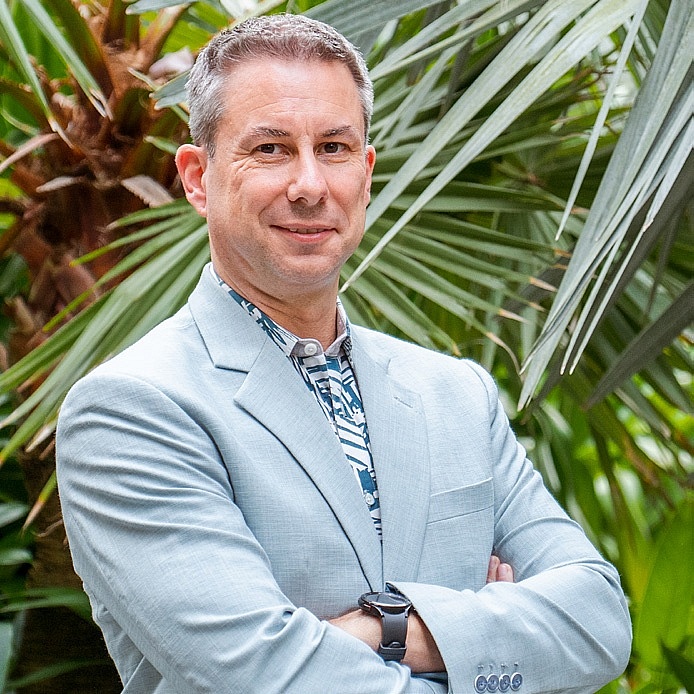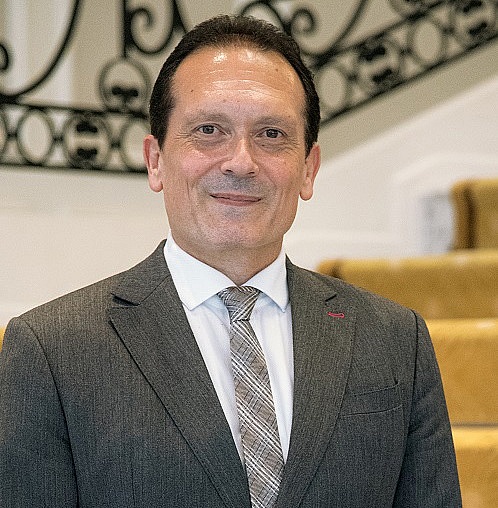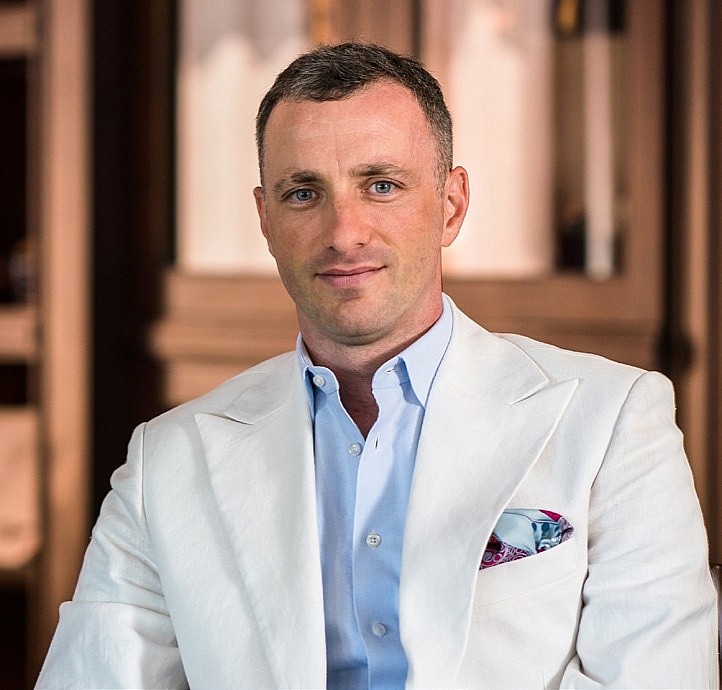Vietnam’s hotel sector adapts to global sustainable travel trends
The travel and hospitality sectors are increasingly being driven to adopt sustainable practices, in part due to the government’s strong commitment to climate action.
A pivotal milestone in this movement was reached at COP29 at the end of the year, where the Presidential Initiative on Enhanced Climate Action in Tourism marked the first inclusion of sustainable tourism in the action agenda for the conference. Endorsed by over 50 governments, this initiative underscores the growing global recognition of the urgent need to integrate sustainability into the tourism industry.
At the event, the Global Hotel Alliance, which represents more than 55,000 hotels and over 7 million rooms worldwide, introduced an ambitious framework to track and report critical environmental indicators, ranging from greenhouse gas emissions and water consumption to waste generation and energy use.
In response, hotel chains and hospitality businesses are tailoring offerings to meet the expectations of this eco-conscious demographic. IHG Hotels & Resorts has responded quickly to the growing demand from travellers for sustainable tourism options. Alongside the announcement of six new luxury hotels in Vietnam, IHG highlighted the rising interest in green practices among high-end tourists.
Rajit Sukumaran, senior vice president and managing director for East Asia & Pacific at IHG Hotels & Resorts, noted the significant shift in consumer preferences.
“We are seeing a marked increase in demand for authentic local experiences, particularly in areas such as culture and cuisine. A stronger environmental focus is also becoming an important factor for attracting today’s consumers,” Sukumaran told VIR.
A growing demand
To cater to this demand, IHG’s hotels and resorts in Vietnam are being designed to offer guests experiences that are closely tied to the local environment and culture.
Vivek Bhalla, managing director for Southeast Asia and South Korea said, “We strive to offer local destination experiences, incorporating locally sourced ingredients into our cuisine. This not only provides guests with authentic flavours but also aligns with our strategy. Additionally, many travellers today are keen to engage with the local community, and we have properties located in areas that facilitate this interaction.”
In line with shifting trends towards sustainable tourism, IHG also recognises Vietnam’s strengths in infrastructure as key to supporting the growing demand for eco-conscious travel, particularly among international visitors.
“IHG is committed to ensuring a seamless travel experience from start to finish. When I look at Vietnam, I see significant potential, especially in terms of infrastructure. Road connections and the number of airports are on the rise, though there remains ample room for improvement,” Bhalla said.
Elsewhere, Meliá Hotels International has also made significant strides. The recent completion of solar energy projects at two of its resorts in Vietnam - the Meliá Vinpearl Cua Hoi in Nghe An and Meliá Vinpearl Cua Sot in Ha Tinh - demonstrates the company’s commitment to renewable energy.
Nearly 2,000 solar panels have been installed across these properties, and are expected to provide 10-30 per cent of each resort’s total electricity consumption, a move aimed at reducing their carbon footprint. In addition to these projects, the Meliá Vinpearl Cam Ranh Beach Resort is set to install its own solar system by the end of this year.
The corporation highlighted the importance of these initiatives, stating that the solar energy project was merely one of many efforts aimed at creating a better future for all. Additionally, Meliá is committed to other related practices, including circular food economies, local environmental restoration projects, and reducing single-use plastics.
Complying with green values
Meanwhile, the Marriott International also marked a blooming year with the rebranding of luxury properties. In July, Marriott signed an agreement with Vietnamese IFF Holdings to open a luxury collection hotel and branded residences named as The Residences at Arbora and Arbora Luxury Collection Resort & Spa in Danang, scheduled to open in mid-2026.
Furthermore, in Ho Chi Minh City in September, InterContinental Saigon and InterContinental Saigon Residences were rebranded under Marriott International. Now, Marriott has a Sheraton Grand, Le Meridien, the Renaissance, the Autograph Collection Vinpearl Landmark 81, and a Fairfield Inn in the bustling southern hub, besides a vast number of hotels and resorts nationwide.
The momentum towards sustainability is reflected across Vietnam’s hospitality and real estate sectors. In November, One Destination announced a collaboration with Singapore’s Terne Holdings and the BTS Bernina Private Equity Fund to launch a green-themed complex.
Spanning 5 hectares in Dalat, Haus Da Lat will feature luxury apartments, a commercial centre, and a 5-star hotel operated by an international brand.
 |
| Vietnam’s hotel sector adapts to global sustainable travel trends |
| Claudio Schibli, general manager Mövenpick Resort Waverly Phu Quoc
Phu Quoc is undoubtedly one of Asia’s most beautiful destinations, but like any emerging hotspot, it comes with its own challenges. International connectivity was a major hurdle in 2023. Lengthy travel times for international visitors made the destination less attractive, while higher domestic airfares discouraged local travellers, resulting in a dip in arrivals. Another challenge was balancing the promotion of sustainable travel with a general lack of awareness and understanding among both our team and guests. In 2024, we approached these challenges as opportunities. Phu Quoc’s rising popularity as an international destination led to a surge in direct flights from various global origins. This development reduced travel times and helped boost our resort’s occupancy levels. To build on this, we expanded our team and initiated training. Initially, we relied on traditional face-to-face methods, but started integrating modern tools, such as training apps and online courses. We implemented several initiatives to address environmental concerns. For instance, we eliminated plastic bottles from guest rooms and food and beverage outlets and replaced all takeaway materials with eco-friendly alternatives. We also introduced a towel and linen management system to optimise resource use. To address the island’s broader waste and pollution challenges, we implemented a comprehensive waste management system. While these issues are global in nature, we are committed to doing our part to contribute to a cleaner and more sustainable Phu Quoc. This year will be one of consolidation. By addressing these challenges and focusing on connectivity and the guest experience we minimised potential losses and laid the groundwork for success in the years ahead. Olivier Revy, general manager, Mai House Saigon Hotel
The year has presented challenges for tourism and hospitality, including an economic downturn and high airfares. However, the impact on Mai House Saigon Hotel has been minimal. The digital-green transformation campaign is a crucial initiative for sustainable development in Vietnam. Overcoming these obstacles requires strategic planning, innovation, and collaboration. At Mai House Saigon Hotel, we have implemented cost-effective digital solutions, upskilled the workforce, introduced incremental green transformation, and engaged customers in sustainability efforts. The tourism and hospitality market in 2025 will likely see growth based on current trends, global economic conditions, and Vietnam’s unique strengths. Global tourism is expected to fully recover from the disruptions caused by the pandemic. Vietnam, with its proactive measures and growing reputation as a safe destination, is expected to see a rise in international arrivals. The strongest points for Vietnam’s tourism in 2025 will be its rich cultural heritage and natural diversity, combined with its growing reputation as a sustainable and eco-friendly destination. The nation offers a diverse range of tourism products and services that cater to both local and international travellers. The best choices include experiences that highlight Vietnam’s cultural heritage, natural beauty, and the rising trend of sustainable travel. Daniel Muhor, general manager Sheraton Phu Quoc Long Beach Resort
The tourism and hospitality sector has faced significant challenges in 2024 due to economic crises and high airfares. Some common challenges we faced include reduced guest numbers caused by economic downturns; increased operational costs for energy, food, and labour; talent shortages leaving hotels struggling to attract and retain staff; changing consumer expectations, with guests now expecting more personalised experiences. To minimise losses, hotels have implemented various strategies. Firstly, to secure base business and maintain a positive cash flow, it is important to contract guaranteed business with partners to ensure a breakeven is reached. This needs a dynamic pricing system, adjusting room rates based on real-time demand to attract price-sensitive travellers. We need to diversify revenue streams by offering additional services like events, unique offers, and wellness packages. Secondly, hotels need to leverage technology by using advanced forecasting tools and business intelligence systems to optimise operations and enhance guest experiences. Additionally, it’s vital to apply sustainability initiatives by implementing eco-friendly practices to attract environmentally conscious guests and reduce costs. The digital-green transformation campaign in Vietnam is a significant initiative, requiring substantial investment. In the tourism and hotel sector. This transformation can be particularly challenging due to the daily operational pressures. However, as hoteliers have undertaken efforts to overcome some of these obstacles effectively. Accordingly, we implement technologies like AI-driven customer portals, mobile check-ins, and modern room controls to enhance guest experiences and streamline operations. We adopted eco-friendly practices such as energy-efficient lighting, water conservation measures, and waste reduction programmes to align with green transformation goals. We provided staff with training on new technologies and sustainable practices to ensure they are well-equipped to handle the changes, while partnering with technology providers and sustainability experts to access the latest innovations and best practices. The resort also seeks out grants, subsidies, and green financing options to help offset the costs of implementing digital and green transformation initiatives, for example carbon emission grants. These efforts help hotels and tourism businesses not only comply with the digital-green transformation requirements but also improve their operational efficiency and guest satisfaction. Piotr Madej, general manager Danang Marriott Resort & Spa
The past year was a challenging time for the hospitality industry, especially for the domestic market. However, at our resort, we still saw positive results as we diversified our markets and tailored our service to approach high-end guests who are looking for a personalised experience when travelling. Additionally, the Danang market is bouncing back strongly, attracting guests from countries such as South Korea, Japan, China, and India, making it a preferred destination for both the leisure and events industry in Vietnam. Danang is developing more activities to attract tourists, thanks to the strong support from the Department of Tourism. Events like the Danang Fireworks Competition and Ironman are great ways to position the destination as a dynamic tourism hub, attracting more guests from diverse markets, especially high-end travellers. Additionally, the trend of sustainable travel will continue to be a key focus, alongside a growing demand for cultural and local experiences. Guests are no longer seeking just bed and breakfast options, but rather a complete, immersive, and memorable experience throughout their journey. Cultural and natural attractions are among the key highlights in Vietnam. Additionally, the food and beverage scene is becoming an increasingly attractive feature of the country. The industry in Vietnam is evolving with new restaurant concepts, and with the establishment of the Michelin Guide, it is emerging as a major draw for international tourists visiting Vietnam. In 2024, we participated in the Green Globe Certification programme, reaffirming our commitment to environmental responsibility and promoting eco-friendly practices for a greener future. One of the initiatives we introduced was the creation of our Evergreen Garden within the resort, providing farm-to-table vegetables for our dining outlets. We also invite guests to explore the garden, hand-pick fresh herbs, participate in cooking classes with our chefs, and learn more about Vietnamese cuisine as one of our initiatives to commit to sustainable development. Dewi Lenggang Kusuma Noeke, general manager The Reverie Saigon
The tourism industry in Ho Chi Minh City remains poised for positive growth. We’ve grown in revenue compared to last year by implementing strategic initiatives to enhance our performance and adapt to various market demands. Firstly, we’ve focused on precisely defining our target audience. Our guests - high-net-worth individuals, expatriates, and affluent locals - prioritise exceptional service, exclusivity, and unforgettable experiences over cost. Understanding this, we’ve designed tailored programmes and services which emphasise attention to details, privacy, and unique offerings. This targeted approach ensures we consistently exceed expectations, positioning The Reverie Saigon as a leader in the luxury segment. Secondly, we have strengthened our relationships with online travel agents and collaborated on exclusive packages. These partnerships help us reach a wider audience and offer competitive rates, making our hotel more accessible to price-conscious travellers. Finally, to build long-term loyalty and encourage repeat bookings, we continue to enhance the guest experience. By offering personalised services, unique amenities, and a high level of customer care, we aim to exceed expectations and ensure guests return, even in difficult economic conditions. In 2025, Vietnam will continue to be an emerging destination in Southeast Asia, driven by its rich cultural heritage, stunning landscapes, and luxury offerings. The country’s tourism market will grow as it attracts both regional and international visitors, with strong demand for ecotourism, cultural tourism, and luxury experiences. Overall, Vietnam’s ability to offer a mix of culture, nature, and luxury will remain its strongest selling point. The eco-luxury trend is also expected to continue growing, driven by consumer demand for environmentally responsible and high-quality experiences. We are also implementing environmentally friendly initiatives such as adopting green architecture, using locally and organic sources for dining, and applying sustainable spa treatments by using high-end wellness services with natural, and organic products. Kurt Vieren, general manager Radisson Blu Resort Cam Ranh
We anticipate a strong recovery in the tourism and hospitality market, driven by increased air connectivity, government-backed campaigns, and the resurgence of regional travel from key markets like China and South Korea. The upscale and luxury segments are expected to thrive as travellers increasingly prioritise authentic experiences. Vietnam’s strengths lie in its rich cultural heritage, pristine beaches, and improved infrastructure, including new highways and airport capacity. We are well-positioned to capture this growth by offering tailored experiences that blend luxury with local culture, appealing to both international and domestic travellers. For locals, staycations and wellness retreats remain highly appealing, particularly those featuring family-friendly activities and rejuvenating experiences. Radisson Blu’s Rainforest Waterpark and spa services are perfect examples of offerings that cater to this. For international visitors, eco-luxury experiences are in high demand. We provide exclusive villa stays with private pools, panoramic ocean views, and authentic activities like cooking classes and fishing village and mango farm tours. Our focus on delivering cultural authenticity and premium services ensures a memorable stay for every guest. To enhance Vietnam’s position on the global tourism map, we recommend several things. First, we need visa exemptions and a streamlined process for key markets like India, Europe, and Australia to attract more international travellers. Second, Vietnam should provide tax benefits or subsidies for hotels and resorts adopting green practices, encouraging a more eco-friendly tourism industry. It should also collaborate with airlines to promote affordable short-haul flights from key markets like China and South Korea. Moreover, Radisson Blu Resort Cam Ranh is committed to the digital-green transformation, balancing operational efficiency with sustainability. On the green front, we have implemented a water tank system to recycle water for landscaping and garden maintenance at the resort. This initiative not only minimises water waste but also supports our commitment to sustainable practices. |
What the stars mean:
★ Poor ★ ★ Promising ★★★ Good ★★★★ Very good ★★★★★ Exceptional
Related Contents
Latest News
More News
- Danang Marriott ushers in Lunar New Year by the sea (January 28, 2026 | 11:42)
- Angsana and Dhawa Ho Tram offer a serene Lunar New Year retreat (January 23, 2026 | 23:38)
- Tides of Heritage: A Tet speciality at InterContinental Phu Quoc Long Beach (January 20, 2026 | 12:08)
- Muong Thanh launches Lunar New Year gifts inspired by tradition (January 16, 2026 | 16:41)
- The Grand Ho Tram seeks responsible entertainment with pilot casino access (January 16, 2026 | 10:56)
- Ocean Resort by Fusion Quy Nhon launches Lunar New Year 2026 package (January 15, 2026 | 11:11)
- Regent Phu Quoc announces general manager appointment (January 15, 2026 | 11:06)
- Fusion to debut two landmark hotels in early 2026 (December 26, 2025 | 11:46)
- Pan Pacific Hanoi unveils festive season of light and music (December 15, 2025 | 18:22)
- JW Marriott Hotel & Suites Saigon unveils festive initiatives (December 12, 2025 | 15:12)







 Tag:
Tag:

















 Mobile Version
Mobile Version